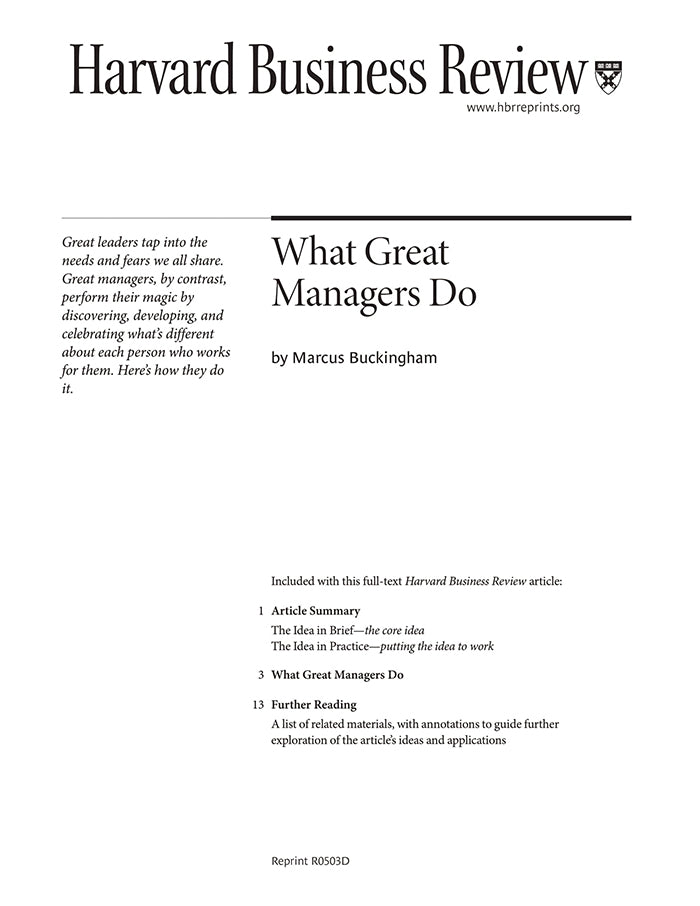What Great Managers Do
受取状況を読み込めませんでした
This article includes a one-page preview that quickly summarizes the key ideas and provides an overview of how the concepts work in practice along with suggestions for further reading. Much has been written about the qualities that make a great manager, but most of the literature overlooks a fundamental question: What does a great manager actually do? While there are countless management styles, one thing underpins the behavior of all great managers. Above all, an exceptional manager comes to know and value the particular quirks and abilities of her employees. She figures out how to capitalize on her staffers' strengths and tweaks her environment to meet her larger goals. Such a specialized approach may seem like a lot of work. But in fact, capitalizing on each person's uniqueness can save time. Rather than encourage employees to conform to strict job descriptions that may include tasks they don't enjoy and aren't good at, a manager who develops positions for his staff members based on their unique abilities will be rewarded with behaviors that are far more efficient and effective than they would be otherwise. This focus on individuals also makes employees more accountable. Because staffers are evaluated on their particular strengths and weaknesses, they are challenged to take responsibility for their abilities and to hone them. Capitalizing on a person's uniqueness also builds a stronger sense of team. By taking the time to understand what makes each employee tick, a great manager shows that he sees his people for who they are. This personal investment not only motivates individuals but also galvanizes the entire team. Finally, this approach shakes up existing hierarchies, which leads to more creative thinking. To take great managing from theory to practice, the author says, you must know three things about a person: her strengths, the triggers that activate those strengths, and how she learns. By asking the right questions, squeezing the right triggers, and becoming aware of your employees' learning styles, you will discover what motivates each person to excel.
【書誌情報】
ページ数:20ページ
サイズ:A4
商品番号:HBSP-R0503D
発行日:2005/3/1
登録日:2012/3/28


